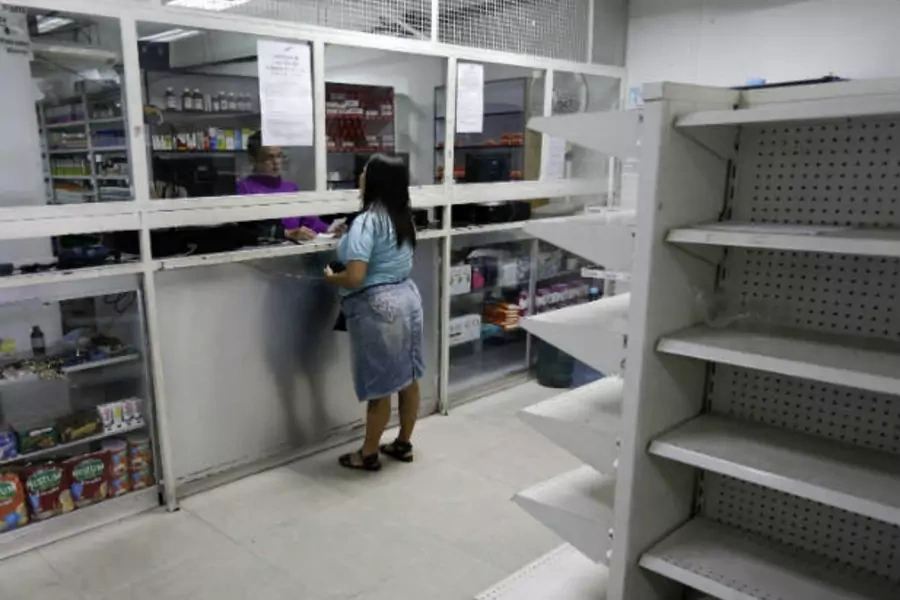Women Around the World: This Week

More on:
Welcome to “Women Around the World: This Week,” a series that highlights noteworthy news related to women and U.S. foreign policy. This week’s post, covering from July 1 to July 8, was compiled with support from Becky Allen, Anne Connell, and Lucy Leban.
Women cope with shortages in Venezuela This week, amid worsening food shortages, nearly five-hundred Venezuelan women broke through border controls with neighboring Colombia to purchase basic goods. The women reportedly used the instant messaging platform WhatsApp to organize and push past Venezuelan National Guard forces who control the border, which was unilaterally sealed last year to prevent the smuggling of Colombian products. Venezuela—in large part due to plummeting oil prices and government corruption—is struggling to produce or import enough goods for its citizens, and the country faces economic collapse, widespread hunger, and public health crises. The crisis has imposed significant challenges on women, who are often responsible for securing food and necessities for families, given that staples like sanitary products, baby formula and diapers, cooking oil, rice, meat, and vegetables have become unaffordable or scarce. The public health system is also plagued by shortages of medicine, medical equipment, and water and electricity, with devastating effects in maternity hospitals around the country: the Health Ministry cites an alarming uptick in child and maternal mortality, with the rate of death among babies under one month old increasing more than one hundredfold in and the rate of maternal mortality increasing by almost five times between 2012 and 2015.
Brexit threatens women’s employment protections The United Kingdom’s vote to leave the European Union (EU) will have significant and far-reaching economic ramifications, including for women’s employment. Post-Brexit, it is unclear if the worker protection standards established by the EU for all member states--on issues such as equal pay, paid parental leave, and workplace discrimination--will continue in the UK when it is no longer subject to EU requirements. Britain’s employment protections for women prior to joining the EU were piecemeal and far less comprehensive than under EU membership. Indeed, EU policies have led to substantial improvements for women workers in the UK: a pan-European treaty remedied loopholes in Britain’s equal pay laws, an EU directive issued in the 1990s expanded eligibility for paid parental leave, and a 1995 European Court of Justice ruling established the precedent that firing a woman due to pregnancy constitutes sex discrimination. Following Brexit, the UK could decide to retain or improve upon EU policies protecting women in the workplace--or could let them expire without replacement.
Iraqi minorities disappearing A new report finds that many of Iraq’s ethnic minorities are on the verge of disappearing due to the systematic killing and sexual violence carried out by the so-called Islamic State group. Tactics targeting civilians--ranging from the use of chemical weapons to rape and torture--have displaced an estimated 3.3 million Iraqis and resulted in the deaths of thousands since June 2014. Estimates suggest that over one-third of those displaced are children and an unknown number of women and girls have been raped, forced into marriage, or sexually enslaved by Islamic State fighters. Yezidi, Turkmen, Shabak Christian, and Kaka’i minority groups have been disproportionately burdened by violence and targeted for sexual abuses, with communities “increasingly disillusioned and disappointed not only with the Government of Iraq and Kurdistan Regional Government, but also with the UN [efforts to protect civilians],” according to the Unrepresented Nations and People Organization. The new report’s release comes over a year after the organization’s 2015 report on minority groups detailed the urgent need for basic security and humanitarian assistance, and shortly after the UN’s declaration that Islamic State atrocities amount to genocide against Yezidis.
More on:
 Online Store
Online Store